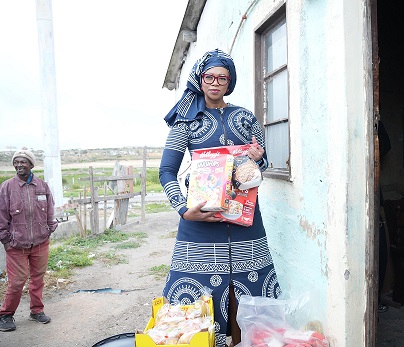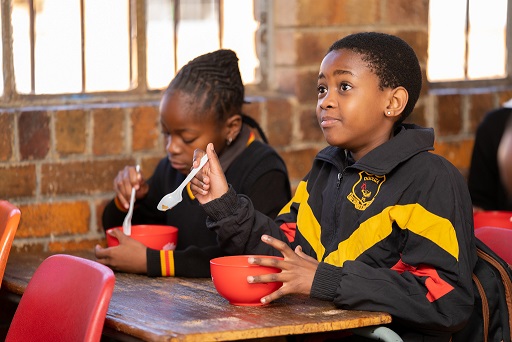OVER the past 11 years, Kellanova has donated over 62 million meals through the Better Days School Feeding Programme to learners in SA.
Kellanova, previously Kellogg’s, one of my favourite morning cereals, is today celebrating World Food Day, in partnership with National Department of Agriculture in KwaZakhele- Gqeberha, Eastern Cape.
Thus far, Kellanova donated approximately 139,000 meals to communities in need and 2,3 million meals to schools in Gqeberha, Eastern Cape.
“Kellanova has been deeply rooted in the Eastern Cape community for over a decade, ensuring that thousands of learners start their school day with a nutritious breakfast every school day since 2014.
Through our established partnership with the National Department of Basic Education, Kellanova donates breakfast to 11,780 children who attend 15 schools in Gqeberha,” says Zandile Mposelwa, Corporate Affairs Director at Kellanova South Africa.
According to Statistics South Africa, over 21% of South African households grapple with food insecurity.
Hungry children cannot concentrate at school – with devastating consequences. At an individual level, these children will not be able to realise their full academic potential, damaging their prospects of a bright future, a scary outcome.
“This World Food Day, we affirm our commitment to creating better days for communities in South Africa and positively impacting society by helping to end hunger and contribute to achieving food security, commented Philip Nieman, General Manager at Kellanova SA.
Over the past 11 years, Kellanova has donated over 62 million meals through the Better Days School Feeding Programme to learners in Gauteng, the Eastern Cape and KwaZulu-Natal.
In 2024, Kellanova launched the Better Days School Gardens, which supports gardens at five schools to provide fresh vegetables to over 4,600 children as part of their school lunch.
It has also trained about 180 families to grow vegetables at home.
This global leader in snacking, cereal and noodles, seeks to advance sustainable and equitable access to food by addressing the intersection of hunger, sustainability, well-being, and equity, diversity and inclusion, with the ambition of creating Better Days for 4 billion people by the end of 2030 (from a 2015 baseline).
Image supplied (Learners seen enjoying a meal at school).


